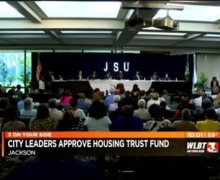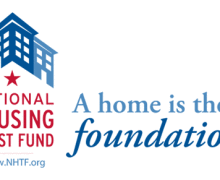As National Housing Trust Fund Nears Reality, Advocates Still Have Work to Do

ALERT: National Housing Trust Fund under attack! Take Action!
The proposed FY16 appropriations bill for HUD passed today by the House Appropriations Subcommittee on Transportation, Housing and Urban Development, and Related Agencies (THUD) would eviscerate the National Housing Trust Fund. Click here to learn more and take action.
In February of this year, HUD released the interim regulations that dictate how the NHTF will be administered. For more information on the interim regulations, visit the National Low Income Housing Coalition recorded webinar.
Throughout February, HUD posted and updated the FAQ on the HUD Exchange website to inform states that they should send a notification letter to the HUD Secretary Julián Castro indicating the state department or agency or state-designated entity that will administer the NHTF along with contact information. The modified FAQ also adds that only one state department/agency or state-designated entity can be designated as the NHTF grantee.
Even though the NHTF was established in 2008 and many states had selected a state agency or entity to administer the state allocation, HUD only has a handful of states who have officially indicted their selection. NHTF advocates should be following up to make sure their governors or state legislatures are sending the official notification to Secretary Castro. What is needed for official notification can be found at https://www.hudexchange.info/resource/4420/htf-faqs/.
On April 10, HUD posted an initial list of states that have formally notified the HUD Secretary of which state agency or state designated entity has been chosen by the governor or state legislature to be the NHTF grantee. To date, twelve states have sent HUD the required notification. The list of states is listed and updated on HUD’s website: https://www.hudexchange.info/programs/htf/grantees.
The National Housing Trust Fund was established as a provision of the Housing and Economic Recovery Act of 2008, which was signed into law by President George W. Bush. The passage of National Housing Trust Fund legislation is a major victory for low income housing advocates and the lowest income people in our country with the most serious needs. The NHTF will provide communities with funds to build, preserve, and rehabilitate rental homes that are affordable for extremely and very low income households.
According to the HUD Exchange website, during 2015 States will begin developing their HTF Allocation Plans and solicit input from their constituents and submit these plans to HUD along with their 2016 Annual Acton Plans. HUD anticipates that grantees will receive their HTF allocations by summer 2016.
United For Homes Continues to Push for More Funding
 While the regulations and implementation plans are being hashed out at HUD, on March 26, Representative Keith Ellison (D-MN) introduced a bill to reform the mortgage interest deduction and direct the majority of the resulting savings to the NHTF.
While the regulations and implementation plans are being hashed out at HUD, on March 26, Representative Keith Ellison (D-MN) introduced a bill to reform the mortgage interest deduction and direct the majority of the resulting savings to the NHTF.
The “Common Sense Housing Investment Act,” H.R. 1662, is the centerpiece of the United for Homes campaign to fund the NHTF. The bill would also provide additional resources for the Public Housing Capital Fund, the Section 8 program, and the Low Income Housing Tax Credit.
H.R. 1662 would cap the amount of a home mortgage eligible for a tax break at $500,000, down from the current cap of $1 million. Only 4.5% of all mortgages taken out from 2011 to 2013 were for more than $500,000. The bill also would convert the deduction to a non-refundable mortgage interest tax credit. These two changes would expand from 39 million to 55 million, the number of homeowners who would receive a tax break on their mortgages. Virtually all of the 16 million additional homeowners who would benefit would have incomes under $100,000 per year.
“The Common Sense Housing Investment Act provides a more generous tax benefit for more working families with mortgages AND makes a significant contribution to addressing the rental housing crisis. It would enable 16 million more current homeowners with a mortgage to receive a bigger tax break. It also makes a significant contribution to the gap of seven million affordable rental homes needed for extremely low-income families,” Mr. Ellison said in a statement.
The United for Homes Campaign, composed of 2,000 national, state, and local organizations and elected officials located in all 435 Congressional Districts and the District of Columbia, endorses H.R 1662 and pledges to work to advance the legislation. The bill is similar to legislation introduced in the 113th Congress, H.R. 1213, which was referred to the Committees on Ways and Means and on Financial Services, but was never acted on.







